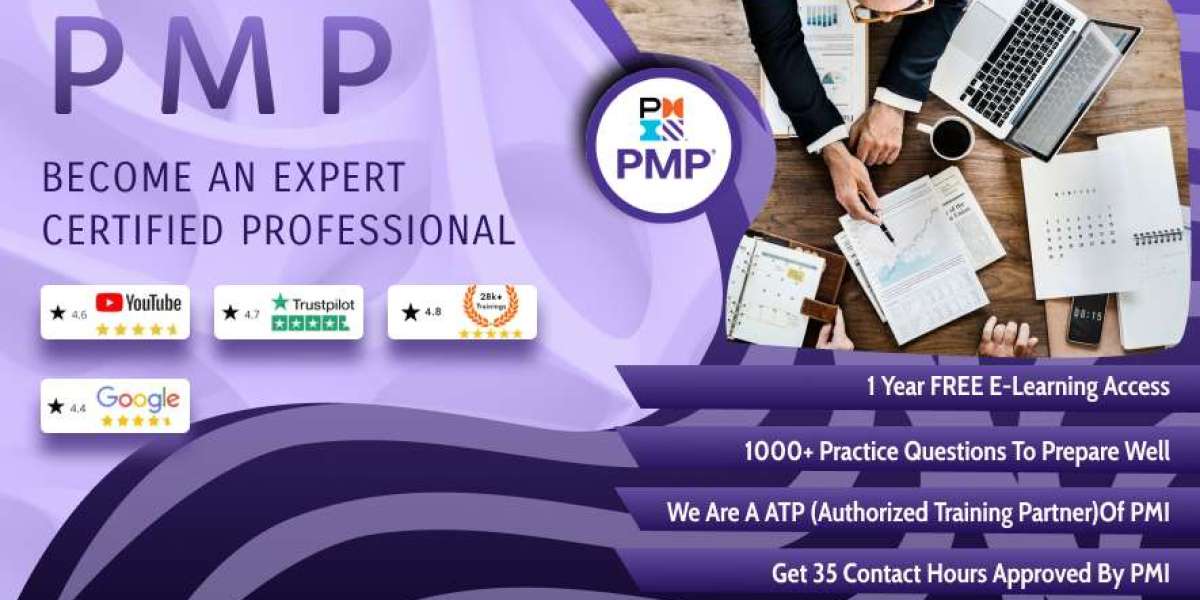Project Management Professional (PMP) certification stands as a beacon in the realm of project management, signifying mastery, expertise, and commitment to the profession. In an ever-evolving professional landscape, where project management is central to organizational success, attaining PMP certification has become a hallmark of proficiency and a key differentiator in the job market. For beginners venturing into project management, understanding the essence and significance of PMP certification is paramount. This comprehensive guide aims to illuminate the path to PMP certification, elucidating its intricacies, benefits, and the journey involved.
Understanding PMP Certification:
PMP certification, conferred by the Project Management Institute (PMI), serves as a testament to an individual's competency in project management. It validates the holder's proficiency in leading and directing projects, showcasing a solid foundation in project management principles, processes, and best practices. PMP certification is globally recognized and revered across industries, making it a coveted credential for project managers worldwide.
Prerequisites and Eligibility:
Before aspiring to become a PMP, understanding the prerequisites and eligibility criteria is essential. To apply for the PMP exam, candidates must fulfill certain requirements:
Educational Background: Candidates must possess a secondary degree (high school diploma, associate’s degree, or global equivalent) along with 7,500 hours leading and directing projects, or a four-year degree along with 4,500 hours leading and directing projects.
Project Management Education: Additionally, candidates must complete 35 hours of formal project management education provided by PMI Registered Education Providers (R.E.P.s).
Professional Experience: Alongside education, candidates must have a minimum of three years of project management experience, comprising 4,500 to 7,500 hours of leading and directing projects, depending on their educational background.
The PMP Certification Process:
The journey towards PMP certification entails several steps, each designed to evaluate and endorse a candidate's project management acumen:
Application Submission: The first step involves submitting the PMP application via the PMI website. The application requires details regarding educational background, project management experience, and formal project management education.
Application Review: PMI conducts a thorough review of the submitted application to ensure compliance with the eligibility criteria and documentation requirements. Upon approval, candidates receive an approval notification, allowing them to proceed to the next phase.
Exam Preparation: With the application approved, candidates embark on rigorous exam preparation. The PMP exam assesses proficiency across five domains: initiating, planning, executing, monitoring and controlling, and closing the project. Utilizing study materials, practice exams, and reference guides, candidates prepare to demonstrate their comprehension and application of project management principles.
PMP Exam: The PMP exam comprises 180 multiple-choice questions, spanning the aforementioned domains. Candidates have four hours to complete the exam, necessitating adept time management and strategic question tackling. The exam evaluates not only theoretical knowledge but also practical understanding and decision-making skills in real-world project scenarios.
Continuing Certification Requirements (CCR): Upon successfully passing the PMP exam, certified professionals must adhere to PMI's Continuing Certification Requirements. This entails earning 60 Professional Development Units (PDUs) every three years, signifying ongoing professional development and engagement in project management activities.
Benefits of PMP Certification:
Attaining PMP certification bestows a plethora of benefits upon professionals, augmenting their career prospects and enhancing organizational value:
Global Recognition: PMP certification is globally recognized and respected, opening doors to diverse career opportunities across industries and geographies.
Enhanced Credibility: Certified PMPs command enhanced credibility and trust, instilling confidence in stakeholders and employers regarding their project management prowess.
Career Advancement: PMP certification serves as a catalyst for career advancement, propelling professionals into leadership roles and strategic positions within organizations.
Competitive Edge: In a competitive job market, PMP certification confers a competitive edge, distinguishing certified professionals as top-tier project management experts.
Salary Potential: PMP certification often correlates with higher earning potential, with certified professionals commanding premium salaries compared to their non-certified counterparts.
Networking Opportunities: The PMP community offers extensive networking opportunities, enabling certified professionals to connect, collaborate, and learn from like-minded individuals and industry experts.
Tips for PMP Exam Success:
Achieving success in the PMP exam requires diligent preparation, strategic planning, and a steadfast commitment to excellence. Here are some tips to help navigate the path to PMP certification:
Understand the PMBOK Guide: The Project Management Body of Knowledge (PMBOK) Guide serves as the cornerstone of PMP exam preparation. Familiarize yourself with its concepts, processes, and knowledge areas to build a strong foundation.
Practice, Practice, Practice: Engage in ample practice exams and simulated tests to acclimatize yourself to the exam format, pacing, and question types. Practice reinforces comprehension and enhances confidence in tackling exam questions.
Focus on Weak Areas: Identify and prioritize your areas of weakness, allocating more time and resources to bolstering comprehension and proficiency in those domains.
Utilize Study Resources: Leverage a diverse array of study resources, including textbooks, online courses, study groups, and exam prep guides, to augment your understanding and preparation.
Develop Exam Strategies: Develop effective exam strategies, such as time management techniques, question prioritization, and elimination strategies, to optimize performance and maximize your chances of success.
Stay Calm and Confident: Approach the exam with a calm and confident demeanor, trusting in your preparation and abilities. Maintain a positive mindset and focus on delivering your best performance on exam day.
Conclusion:
Embarking on the journey to PMP certification signifies a commitment to excellence, proficiency, and continuous learning in the field of project management. Aspiring project managers stand to gain immeasurable benefits from attaining PMP certification, ranging from enhanced career prospects to increased earning potential and professional credibility. By understanding the intricacies of the certification process, diligently preparing for the exam, and embracing a mindset of lifelong learning, beginners can chart a course towards PMP certification and unlock a world of opportunities in the dynamic realm of project management.







